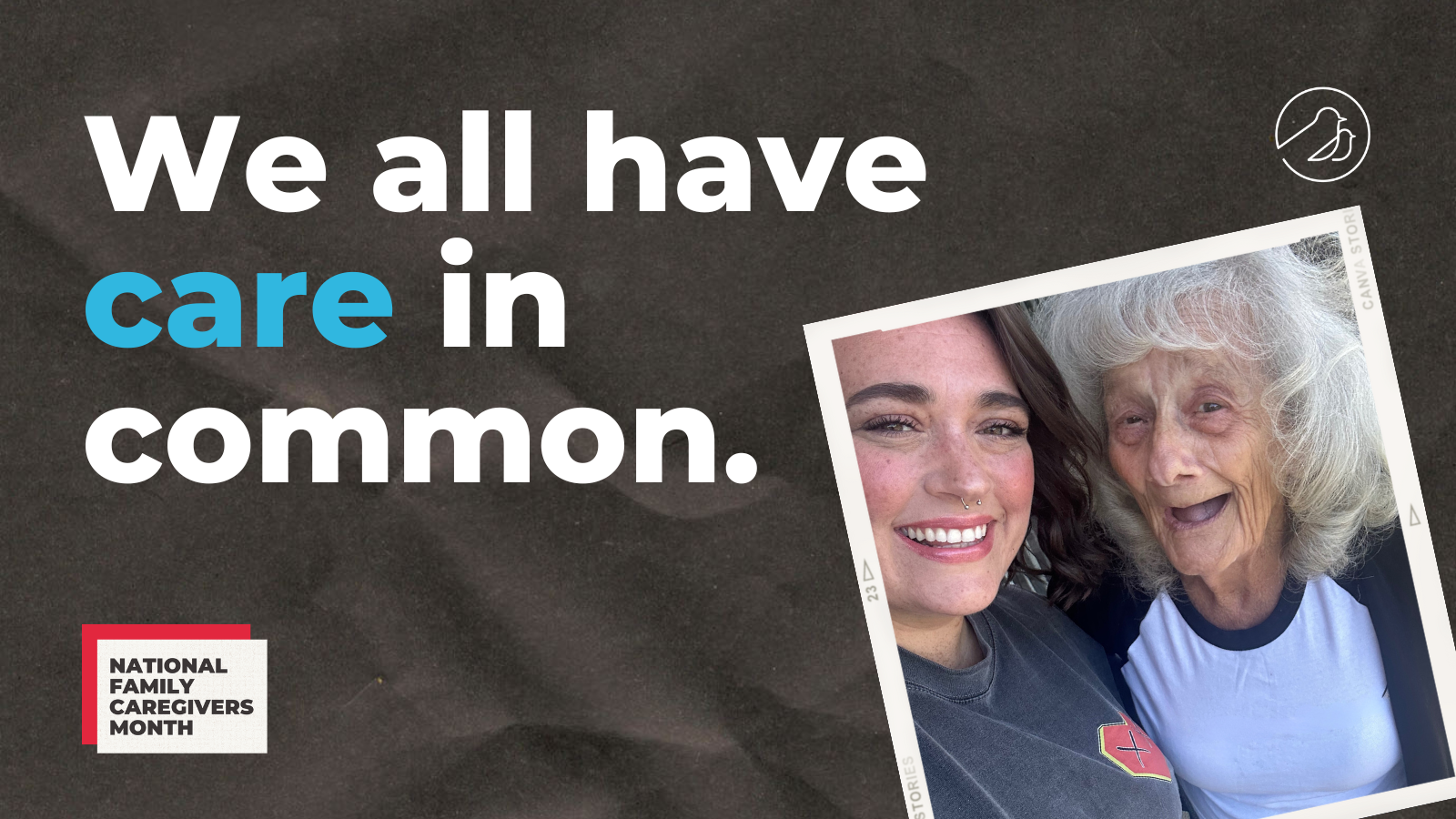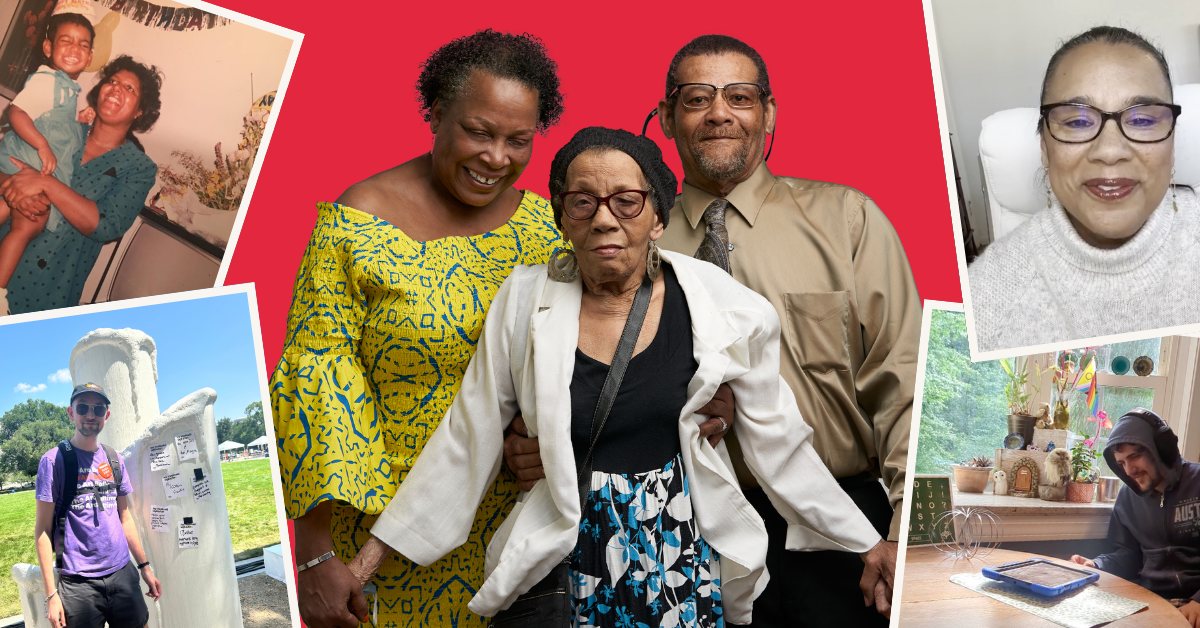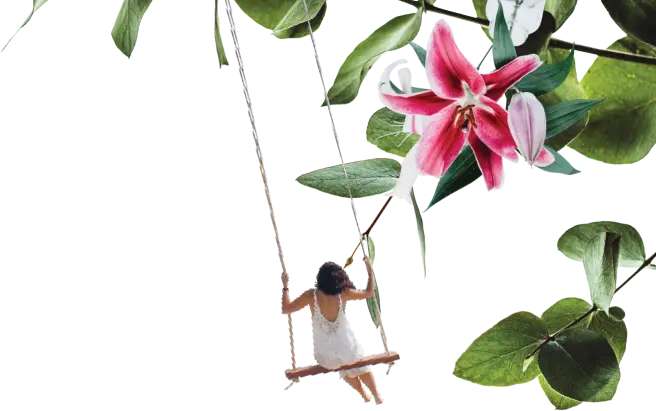
When I started caregiving for my grandma in 2017, I didn’t know what I was in for. I knew that I loved my grandma and wanted to provide the best for her but I didn’t realize the cost. At 29, I was a carefree bartender, living my best millennial life without too many worries or cares, doing whatever I wanted whenever I wanted. In the years prior, I had experienced a lot of heartache and loss, so my main goal was to have fun and not take life too seriously. I didn’t have much of a purpose other than that. So when I decided to move my grandma out of her care facility and into my apartment, I didn’t know what I had in store.
I thought this caregiving thing was just about what I did for her—cooking her meals, making her appointments, paying the bills. But caregiving is never just about the tasks; it’s so much more than that. It’s a balance, and the journey is filled with struggles, lessons, and moments that challenge everything you thought you knew about yourself.
Caregiving is hard—plain and simple. There are so many emotional, physical, and financial burdens that come along with it. We deal with emotional exhaustion from the constant worry, physical fatigue from the daily demands, and financial strain from medical costs and lost income. Add in the challenges of managing family dynamics, and limited resources, and it’s easy to see why caregiving can feel overwhelming at times.
For me, there were many moments when I felt like I was losing myself in the process. It’s easy to forget your own needs when you’re constantly focused on someone else’s well-being. I became consumed with wanting to provide the best for my grandma. With a progressive disease like dementia, every decline felt like a personal failure—like I could have done more. I wanted to do everything I could to keep her thriving, but I often found myself running on empty, pushing through, and questioning whether what I was doing was even worth it.
In January of 2021, I realized I needed to prioritize myself. I was beyond burnt out and I didn’t know how much more I could take. So, I made the difficult decision to ask for real help. Thankfully, my sister stepped up, allowing me to seek inpatient care at a mental health facility. I will never forget this time in my life because it changed everything. I couldn’t keep faking it—I had to take care of myself to continue providing the love and care my grandma had always given me.
During my time away, I realized that caregiving isn’t just about what you do for someone—it’s about the relationship you build, the bond you form, and the lessons you learn along the way. I let go of the idea that, as my grandma’s full-time caregiver, I could “save” her. The reality is that she has a terminal illness, and there’s little I can do to stop its progression. My worth as a caregiver wasn’t measured by how well she was doing. Instead, we chose to focus on the present—being mindful, finding joy in the everyday moments, and embracing the time we have together.
Caregiving has given me purpose in so many ways. It has taught me the value of patience—patience not just with my grandma, but with myself. I’ve learned that it’s okay to have bad days. It’s okay to feel frustrated, to feel exhausted, and to feel unsure. Those emotions don’t make me any less of a caregiver. They make me human.
Aside from seeking help, one of the most important decisions I made in my caregiving journey was to start sharing my experience. When I began @LifeWithGrams, it started as a way of documenting our time together, but I quickly discovered the power of connection. Sharing my caregiving journey has been a way to process the daily challenges and triumphs. But it’s also been an incredible way to connect with others who are going through similar experiences.
Through Life With Grams, I’ve built a community of caregivers—people who truly understand the highs and lows of caring for a loved one. I’ve found support in the most unexpected places—whether through a simple comment on one of my posts or a message from another caregiver sharing their journey. These connections have been vital to my well-being, helping me find growth, fulfillment, and a renewed sense of purpose.
It’s easy to feel isolated as a caregiver, but when we open up, we allow others to do the same. Through our stories, we can start changing the conversation around caregiving and break down the stigmas that often come with it. Caregiving shouldn’t be something we face alone, even though it often feels that way. The more we share our experiences, the more we can normalize the challenges and celebrate all the moments of joy that come with it.


